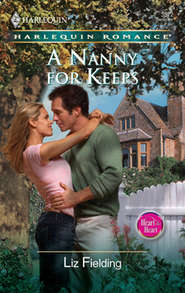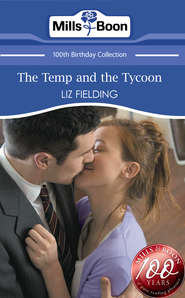По всем вопросам обращайтесь на: info@litportal.ru
(©) 2003-2025.
✖
An Image Of You
Автор
Год написания книги
2018
Настройки чтения
Размер шрифта
Высота строк
Поля
She stared at him. ‘How do you know …?’ Then she brushed that aside as unimportant. ‘I can do something, Pa. While you sit up here making money there are children begging on the streets!’
He sighed. ‘There’s a lot that’s wrong with the world, George. But you’ll never beat the system like that!’ He waved his hand at the newspaper that lay on the desk between them. ‘Have you no shame? Dear God, it was bad enough that you were arrested, but why on earth didn’t you telephone? You didn’t have to spend the night in gaol.’
‘Would you have bailed out the others?’ Her father didn’t answer and she shrugged. ‘I didn’t think so.’ George was tired and dirty. She was in desperate need of a bath to wash away the pervasive police-station smell of disinfectant that clung to her clothes.
She stood up and went over to him, taking his hand. ‘Come on, Pa. It’s not that bad.’ There was a special smile that had never before failed her. But her father’s eyes met hers blankly, refusing to respond.
‘Not everyone has had your advantages, George. Some people have to go to work every day whether they want to or not. They don’t have the luxury of a private income.’ His eyes slid over her dishevelled appearance and he shook his head. ‘Not that anyone would know. Why can’t you be more like your sisters …?’
George snorted. ‘All tweeds and babies and dogs?’ She caught her father’s expression and held up her hands in mock defence. ‘I know. I know. I don’t appreciate you all, or how lucky I am …’
‘Well, perhaps you can learn to. I have stopped your credit cards from today. And your bank account.’
There was a moment of stillness between them. George’s thick dark brows drew together as she tried to take in what her father had said. ‘How can you do that?’ She shook her head. ‘You can’t do that …’ She pushed back long strands of hair that had escaped from her unhappy attempt at a French plait.
‘It seems that I can. I have deemed that you are no longer …’ He paused, seeming to choose his words with care. ‘No longer a fit and responsible person. I hope that it is a temporary aberration.’
‘You can’t do that!’ She took in the implacable expression on her father’s face, and her outrage turned to concern. ‘I’ve bills to pay, responsibilities …’
‘Bills will be paid under my signature.’ He looked up. ‘Your “responsibilities” are living rent free. They will, for the moment, have to provide their own food.’ Sir Charles opened the folder in front of him. ‘You are more fortunate than most. I have, as I said, already arranged a job for you.’ He looked up. ‘I’m afraid it is only temporary as assistant to Lukas on a location shoot. But then beggars can’t be choosers. Perhaps in Africa you will learn that there is worse to contend with than the welfare state.’
George sat down opposite her father and prepared at least to make a show of listening while she tried desperately to think of some way out of her predicament. One thing was certain—and her fingers strayed absently to her lips—there was no way that she could work with Lukas.
‘Now, George.’ Her father reclaimed her attention. She recognised the tone of voice. It was the one he reserved for particularly tiresome puppies. ‘Your plane leaves tonight. A room has been booked for you at the Norfolk Hotel in Nairobi …’
‘Nairobi?’ Her heart skipped a beat in sudden excitement.
‘Mr Lukas will pick you up as soon as he can.’
His name brought her rudely back to earth. She shook her head. ‘No. It’s no good, Pa. Not Lukas. I can’t work with him.’
‘I don’t remember offering you a choice, George.’ Her father’s eyes narrowed. ‘I take it from all these protestations that you have already met the gentleman.’
‘Gentleman!’ That was the last thing she’d call him. And of course she’d met him. They had once had a memorable close encounter. One that she would heartily like to forget. There was nothing for it but to throw herself on her father’s mercy. ‘Please don’t do this to me. I can’t go! He’s …’
‘Yes?’ Sir Charles waited.
She took a deep breath. ‘I threw a bag of flour at him when he was judging an international beauty contest.’
Her father’s laughter was genuine. ‘I don’t remember being asked to bail you out,’ he prompted.
‘He didn’t press charges.’ George refused to look her father in the eye. Lukas had dealt with her personally. Very personally.
Sir Charles Bainbridge looked at his daughter with interest. ‘You’d better hope he doesn’t remember the incident as clearly as you obviously do.’
She remembered. And she was sure he would. She felt hot tears of humiliation welling up behind her lids. Why couldn’t he see that it was impossible for her? ‘He’s a dreadful man. Really. I won’t go. I absolutely refuse.’
‘Totally beyond the pale without a doubt. But a very fine photographer nevertheless. I am sure you can learn a great deal from him.’ Her father came round the desk and leaned against it. ‘This job will be a complete break from all this nonsense you’ve become involved in. Go willingly, George. And when you return, if you have done well …’ he raised a hand to prevent her interruption ‘… I will be prepared to discuss your plans for a refuge.’
‘Why?’ she interrupted. ‘Why now?’
Charles Bainbridge considered his favourite daughter. She was so like her mother, that high sense of justice. He sighed. ‘You need a focus. You racket around endorsing any cause that takes your heart.’ He smiled at her. ‘It’s a good heart, I don’t deny it, but you’re wasting yourself. Burning up your energy in too many directions at once.’
George saw a chink of light and dived in, sitting forward eagerly. ‘But I could start right away. If you’ll help I’ll stay away from protest marches, I promise.’ She smiled winningly.
‘George!’ She subsided back into the chair and shrugged. It had been worth a try. But her father had continued. ‘I am asking you to do something for me. Something you’re good at. Try and think of me as a deserving cause; that should help.’ He too had a special smile to help him get his way. ‘It’s surely not much to ask in return for that.’ He waved at the newspaper. ‘Just do a good job for Lukas.’ He tried to turn his order into a joke. ‘Or he may refuse to work for me again. And that would make me very cross indeed.’ He held out a folder containing her ticket. ‘There are a few traveller’s cheques with your ticket. Pocket money, that’s all.’
She ignored the folder. ‘And if I refuse to go?’
Her father shrugged, the smile gone. ‘You had better hope that your friends are as generous to you as you have been to them.’
‘I see. Cut off without a penny. Oh, well. I suppose there’s always the DSS.’
Her father’s eyes hardened. ‘Don’t you think they have enough calls on their resources already?’
George defied him for a long moment, then gave way before his determined look. ‘You’ll really help with the refuge?’
‘You have my promise,’ he assured her.
She took a deep breath. Her father’s support would mean the difference between success and failure—a far more important consideration than her embarrassing encounter with Lukas. ‘I’d better get going, then.’ She picked up the folder, turned, hefted her battered leather sack over her shoulder, and walked briskly to the door where she paused and turned. ‘And I am sorry about that. Truly.’ She pointed to the newspaper.
‘Keep Lukas happy and you’re forgiven.’ He smiled. ‘Good luck.’
I’ve a feeling I’m going to need that, George thought as she closed the door. Keeping him ‘happy’ might not be that easy.
Her father’s secretary handed her a longed-for cup of coffee. ‘These are tablets to take against malaria, George. You should have been taking them for a couple of weeks, but follow the instructions on the bottle.’
‘Thanks, Bishop. But it’s not the mosquitoes I’m worried about.’
Miss Bishop laughed. ‘You mustn’t worry about Lukas, George. He is so charming. Not a bit the way they write about him in the papers.’
‘Really?’ George raised an eyebrow. ‘I thought it was his “charm” they concentrated on.’
Miss Bishop bridled. ‘You know that you can’t believe what you read in the papers.’ She saw George’s expression and had the grace to blush. ‘Well, not everything. When Lukas telexed this morning for a replacement for Michael, I said to Sir Charles that it was just the thing …’ Her voice trailed off as she realised that she had given herself away.
‘You suggested this? Oh, Bishop, I thought you were my friend.’ She took the bottle of tablets. ‘Why does he need a replacement?’
‘He didn’t go into details, it was just a short telex. But the poor young man who went out with him is in the hospital. Now I’ve bought you some sun-block creams and insect repellents. I didn’t think you’d have much time. Is there anything else I can get you?’
George smiled. ‘A new camera. Those beasts smashed mine yesterday.’
Her father’s secretary looked doubtful. ‘I’m not sure that I’m allowed … your father was most insistent …’
‘It’s covered by insurance. You can handle the claim for me, can’t you? Dear Bishop? Please? I can’t go to Africa without a camera.’
Miss Bishop relented. ‘No, I suppose not. And if it’s insured I’m not giving you cash, am I?’ Having talked herself into helping, she handed George a notepad. ‘Write down what you want. Henry can get it for you and he’ll bring it when he picks you up to take you to the airport tonight.’
‘Bless you. I shall need some film, too.’ She startled the older woman with a hug. ‘Here you are.’ She quickly scribbled down the make and model. ‘And some of these notebooks and pencils?’











